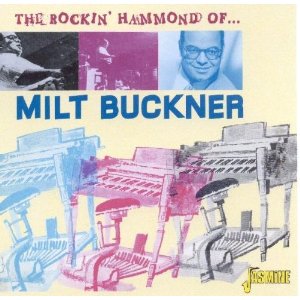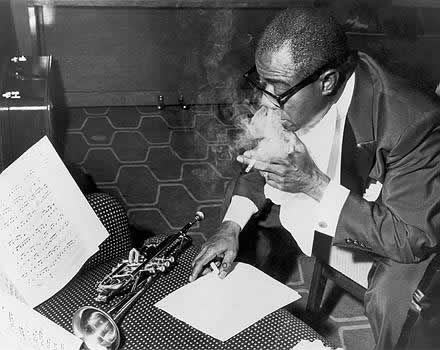“But Dave’s approach to chocolate was actually pretty low-key, in the context of the new foodie movement which has sprung up around fine chocolate. This movement has, alas, spawned its own insufferable rhetoric, such that, in reading over various high-end chocolate catalogs, you are likely to encounter descriptions of this ilk: A saucy single-bean, grown exclusively in the shady lowlands of Ghana and harvested on alternating Tuesdays, at dusk. Notes of cardamom and oak predominate, with an insouciant creosote finish. (Those familiar with other luxury foods–wine and coffee, for instance–are no doubt familiar with this process: the curdling of expertise into hauteur.)”
Steve Almond, Candyfreak: A Journey Through the Chocolate Underbelly of America
TONY KUSHNER’S CHARACTERS SHOULD STOP TALKING NOW
“Like all genuine artists, Kushner writes not as he should but as he must, and his diffuse discursiveness is undoubtedly in part a function of his temperament. Still, the success of Angels in America seems to have confirmed Kushner in the belief that the iron law of economy that governs traditional theatrical storytelling does not apply to him…”
TT: A little traveling music, maestro
 Mrs. T and I depart today on a two-week tour of theater companies in Maine, Massachusetts, and New Hampshire. We’ll be doing a lot of driving, and I thought it might amuse you to know what CDs I’ve packed for the road:
Mrs. T and I depart today on a two-week tour of theater companies in Maine, Massachusetts, and New Hampshire. We’ll be doing a lot of driving, and I thought it might amuse you to know what CDs I’ve packed for the road:
• Pat Metheny, What It’s All About
• The Rockin’ Hammond of…Milt Buckner
• Stephen Sondheim: The Story So Far…
• John Wesley Harding, Who Was Changed and Who Was Dead
• Booker T. and the MGs: The Definitive Soul Collection
• Donald Fagen, Morph the Cat
See you elsewhere!
TT: Snapshot
“All the Cats Join In,” a 1946 Walt Disney cartoon animated by Fred Moore and accompanied by Benny Goodman’s orchestra. This cartoon originally appeared as part of the animated feature Make Mine Music:
(This is the latest in a weekly series of arts-related videos that appear in this space each Wednesday.)
TT: Almanac
“I had decided to write about candy because I assumed it would be fun and frivolous and distracting. It would allow me to reconnect to the single, untarnished pleasure of my childhood. But, of course, there are no untarnished pleasures. That is only something the admen of our time would like us to believe. Most of our escape routes are also powerful reminders; and whatever our conscious motives might be, in our secret hearts we wish to be led back into our grief.”
Steve Almond, Candyfreak: A Journey Through the Chocolate Underbelly of America
TT: English, the not-so-universal language
 I just got another wonderful e-mail from the Bulgarian translator of Pops: A Life of Louis Armstrong. Here it is, verbatim and in its entirety:
I just got another wonderful e-mail from the Bulgarian translator of Pops: A Life of Louis Armstrong. Here it is, verbatim and in its entirety:
I am writing to you again because I am wondering how to interpret Armstrong’s explanation of [Sid] Catlett’s irresponsibility: “He played the chicks, he ran with the cats, he played the horses, played the numbers” (especially the horses). I am not sure how to understand these metaphors, as well as how exactly they fit together.
Could you also explain to me the meaning of the title of Armstrong’s article “Stomping Piano Man”?Also, I am not sure if I understand correctly the title “Keep the horn percolating” and the related statement, made by Armstrong. Could you say that in other words in order to get closer to the meaning?
And one more question related to a chapter title. Which one of the meanings of “sigh” has to be used in the context of “I don’t sigh for nothing”?
Believe me, I did my best…
UPDATE: Several readers have asked how I answered these questions, so here goes:
• “He played the chicks” means “He had romantic and/or sexual involvements with many women.”
• “He played the horses, played the numbers” means “He gambled.” “To play the horses” is to bet on horse races. “The numbers” was a slang name for an illegal city-wide lottery-like game that was popular in most American cities–and especially in their black ghettoes–prior to the introduction of legal state lotteries in the U.S.
• “He ran with the cats” means “He spent time with his friends.”
• In jazz, “stomping” means “hard-swinging,” and a “piano man” is simply someone who is known for playing the piano.
• In this context, “Keep the horn percolating” means “Keep me musically inspired by having sex with me.”
• “I don’t sigh for nothing” means “I have no regrets.”
TT: Just because
Duke Ellington performs “Mood Indigo” in 1952:
TT: Almanac
“Most forms of rage, after all, are only sloppy cloaks for grief.”
Steve Almond, Candyfreak: A Journey Through the Chocolate Underbelly of America
